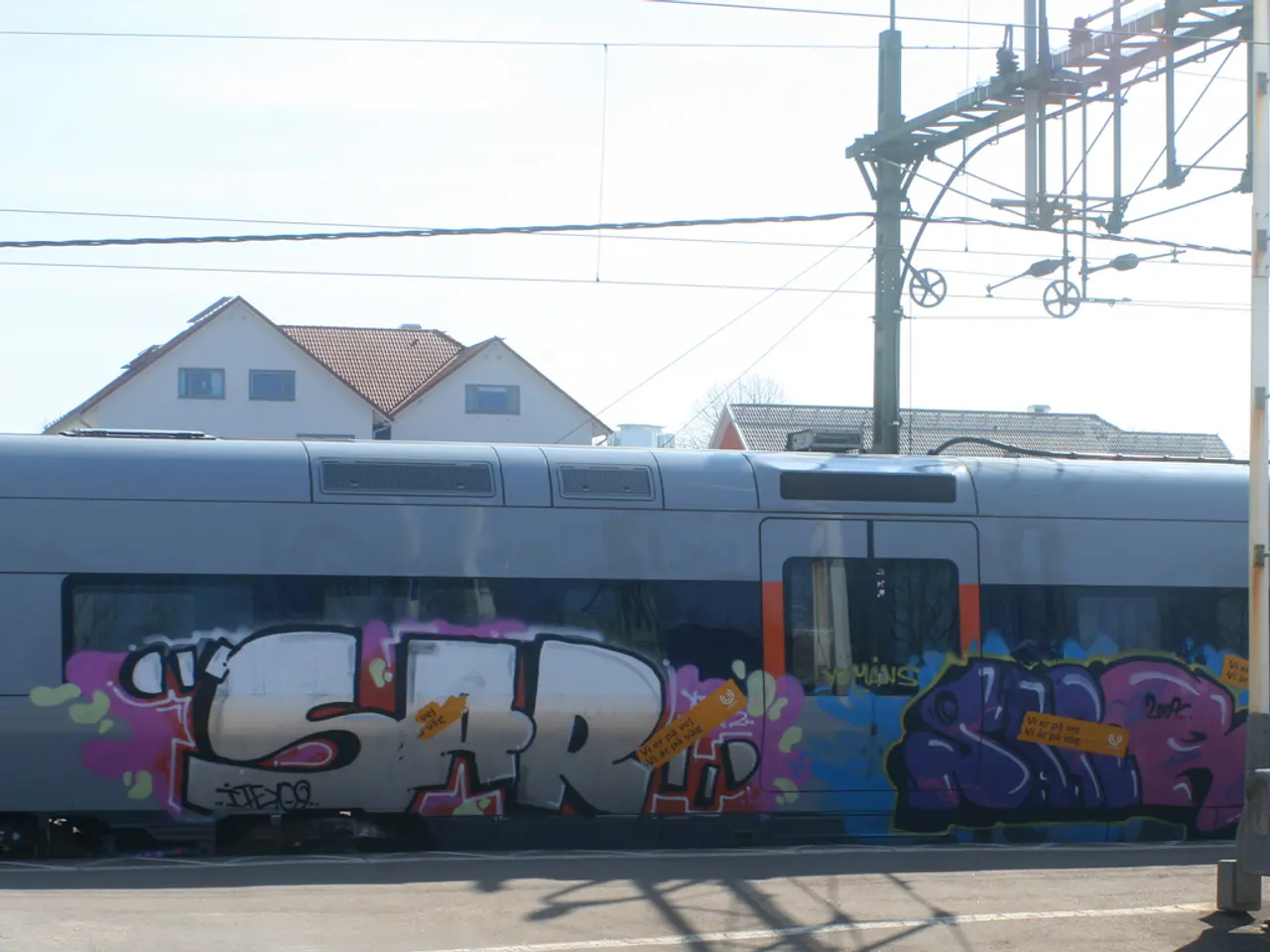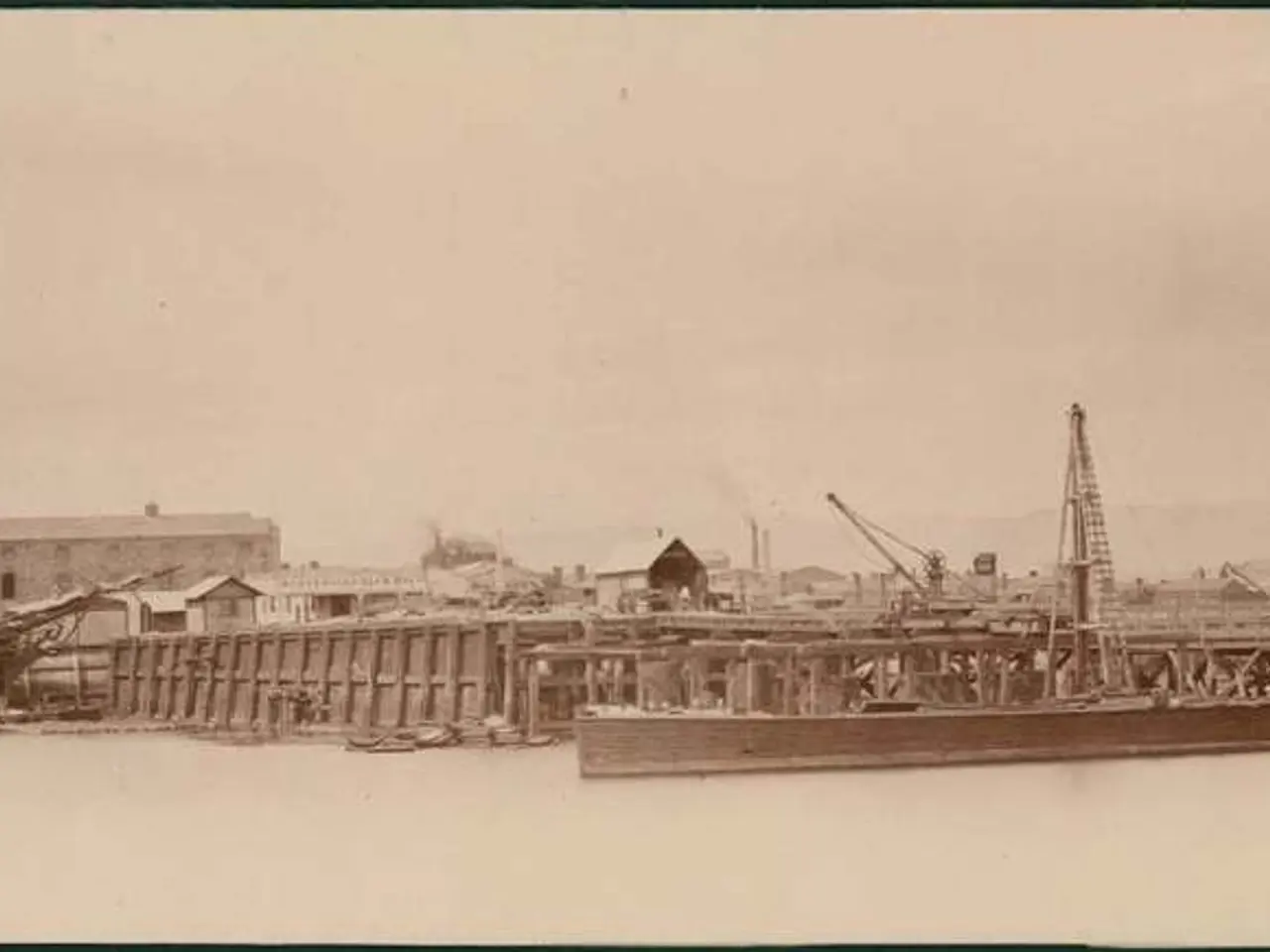Disjointed Long-Distance Train Travel in Germany Post-Storm Continues
Persistent Disruptions Persist in Long-Distance Rail Services
Social media blast about the ongoing issues with long-distance train travel in Germany, as German Railway grapples with the aftermath of a storm. On the ICE lines linking Hamburg, Berlin, Leipzig/Halle, South Germany, Austria, and Prague, as well as the EC line connecting Hamburg to Prague, delays of roughly 15 minutes are being reported [1].
The main culprit? Those pesky trees that decided to take a dive on the tracks! By midday, railway officials are optimistic that the tracks will be cleared and services can return to normal [1].
However, it's not just the Berlin-Hamburg route that's feeling the strain. The east-west connection between Hamburg and Hannover is also under pressure, with an overhead line sustaining damage due to the storm [1]. Consequently, there have been train cancellations and delays, affecting routes like Bonn/Cologne/Düsseldorf – Berlin, where Wolfsburg to capital connections are delayed by about 30 minutes, with some trains even getting the axe [1].
The situation's not much better for ICE connections bound for France via Frankfurt, nor for the IC trains connecting Amsterdam and Berlin, where service between Hannover and Berlin has been canceled, leaving commuters in the lurch [1].
Looking back, the storm "Ziros," which rampaged through Berlin and Brandenburg on June 23, 2025, caused significant destruction and sent urban railway traffic into a tailspin starting Monday afternoon [2]. Despite S-Bahn (suburban railway) traffic croaking back to life on Tuesday morning, delays and cancellations continue to plague almost all lines except the Ringbahn (ring line) and line S47 [2].
Going into June 27, 2025, there are reported delays on the German railway network due to temporary speed restrictions resulting from operational impacts, likely connected to the storm aftermath and ongoing recovery efforts [3]. The chaos on June 24, 2025, when tens of thousands of commuters found themselves trapped in Berlin’s central train station for nearly two hours, is a testament to the severity of the situation [4].
In a nutshell, long-distance train travel in Germany, particularly in the Berlin-Brandenburg region, is currently a hot mess of delays, cancellations, and speed restrictions due to damage and operational issues wrought by the storm "Ziros," with key routes affected and partial service restored but limited as recovery continues [2][3][4].
[1] ntv.de[2] dpa[3] 24-7 News Network[4] Berliner Morgenpost
The disruptions in long-distance train travel extend beyond the Berlin-Hamburg route, affecting industries such as finance, as numerous commuters face delays and cancellations, potentially impacting their schedules and productivity.
Moreover, delays and cancellations in railway services, particularly in the transportation sector, have an indirect effect on various other sectors, including finance, as businesses heavily reliant on timely logistics and deliveries may experience financial constraints due to these disruptions.




